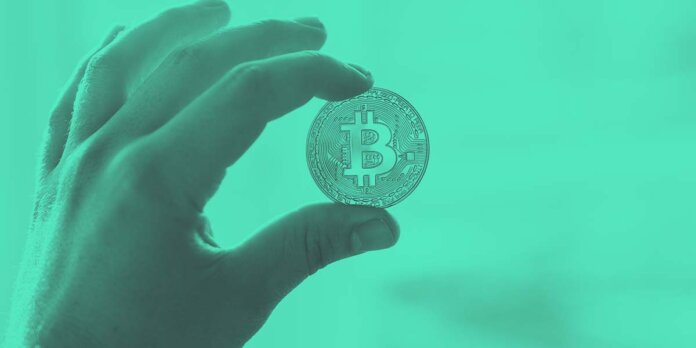Although cryptocurrency trading is becoming increasingly popular, it is not traditional players from the financial industry that are leading the way in this area, but young companies that have become known as pioneers in their respective sectors. Especially in Austria, there are a number of companies that deserve a special mention.
Although the major banks have not publicly announced products for the digital asset industry, they are experimenting with blockchain technology. Raiffeisen Bank International (RBI) launched a separate blockchain hub, which has the task of analyzing how private and permissioned blockchains can be used to improve processes at the bank. In 2017, RBI joined R3’s global Corda network in order to participate in international developments relating to banking in blockchain. Their current token project REST and the coin project BILLON are being tested internally to understand more about the technology and to potentially implement solutions.
As discussed in the exclusive interview with Raiffeisen in this report, they also invested in the digital asset exchange Bitpanda via the blockchain-focused venture capital firm SpeedInvest. The fintech investment vehicle Speedinvest has a special position in Austria. Not only did they successfully complete three venture capital rounds, the sum of the capital employed reached approximately €190 million in the third round. As a strategic investment, Speedinvest along with RBI and Uniqa, acquired an unknown stake in Bitpanda GmbH in April 2020, propelling even stronger growth for the exchange across Europe.

Source: Bitpanda GmbH
Founded in 2014, Coinfinity is a broker and educational center for Bitcoin and blockchain technology based in Graz. They develop products and solutions related to Bitcoin and still operate the first ever Bitcoin machine installed in Austria. In addition, they started Bitcoinbon, which allows people to buy Bitcoins quickly and securely in over 4,000 points of sale in Austria. They also advise decision-makers and offer professional support for entrepreneurs who want to accept Bitcoin as a form of payment. With their branch in Graz, they have successfully established the first Austrian “walk-in office” related to Bitcoin, similar to numerous “Bitcoin embassies” scattered around the world.
They also offer their broker services online for fully verified customers to buy and sell the most popular virtual currencies. At the same time, they personally take care of professional investors and enjoy a high quality processing standard for OTC transactions. They believe that Bitcoin and blockchain technology will change the economy and society significantly in the coming years, and their mission is to make Bitcoin as understandable as possible and to facilitate access to this technology.
Since 2016, ERSTE Group AG has been in partnership with Ripple Labs. They have been investigating how blockchain can be used for the settlement of real-time foreign currency transactions. In addition to their partnership with Ripple Labs, ERSTE conducted one of the first successful placements of a promissory note loan entirely on a private blockchain in 2018. The promissory note was issued by Asfinag, the Austrian motorway administration, and investors invested a total of €20 million. Asfinag was able to successfully sell to three customers: Wiener Städtische Versicherung, Donau-Versicherung, and Hypo Vorarlberg. In 2018, The Austrian Control Bank actually implemented a private blockchain solution notarizing services at federal bond auctions.
This was done to increase the level of data security in the bank. However, no further word on the success of the project or the expansion of the initiative has been communicated. Austrian Post AG, formerly a cooperation partner of BAWAG P.S.K., and Kurant GmbH have been in collaboration since 2019. The now leading European Bitcoin vending machine operator is active in five post office locations across Austria – spanning from Bregenz to Vienna. In terms of inhabitants, Austria has the highest density of machines in the world, which makes buying or selling Bitcoin and altcoins relatively easier. Kurant GmbH has already expanded to Spain, and they plan to further expand to Italy, Greece, and the Netherlands.
“A critical link — perhaps the critical link — in the institutional adoption of Bitcoin is custody. When investors have ready access to regulated custodians whose security and processes they trust, the full potential of this emerging asset class and technology can flourish.”
— Adam White, COO of Bakkt
The aversion to offering digital asset products and services may not be a coincidence. Banks in Austria are supervised by the Financial Market Authority (FMA), and the FMA has not been discreet concerning their negative views on the industry. At the beginning of 2020, the FMA actively contacted all of the banks and inquired as to their involvement in digital assets. They wanted to get an overview of which types of customers, private or companies, are directly or indirectly involved in digital assets. They also reminded the banks of the new requirement for virtual currency service providers to register with the FMA, which has existed since January of 2020. This has translated into extreme caution on the behalf of banks.
Many customers that would like business bank accounts are being turned away if they operate in the digital assets space. Although the general interest of traditional Austrian financial intermediaries has been in the technology of blockchain and not in cryptocurrencies, banks like Raiffeisen International have also engaged in venture capital investments in the blockchain space. Austrians are showing an increasing interest in digital assets, and traditional financial intermediaries must step-up to the business opportunity of offering digital asset products and services. If no Austrian provider can be found, foreign providers will most likely enter the market over the coming years.
Both the market and the technology have developed faster in the field of cryptocurrencies than was the case with state reactions to this phenomenon. However, there are now also regulatory efforts to create a framework that does not hinder innovation, but at the same time is also intended to react to illegal processes in this area. This is the subject we will be looking at in next week’s post.
This article is an extract from the 70+ page Discovering Institutional Demand for Digital Assets research report co-published by the Crypto Research Report and Cointelegraph Consulting, written by eight authors and supported by SIX Digital Exchange, BlockFi, Bitmain, Blocksize Capital, and Nexo.




